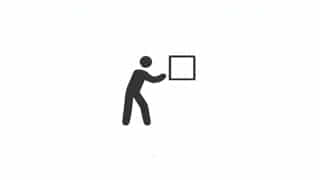The phrase ‘on the act’ is a versatile expression in the English language that can be interpreted in various ways depending on the context in which it is used. It might refer to someone being caught in the process of doing something whether good, bad, or questionable. Alternatively, it can also imply participation in an activity or performance, often with a touch of drama or involvement. This idiomatic expression carries weight in both casual and formal conversations, and its deeper meaning often lies beneath the surface of its words. Understanding how and when to use on the act accurately can help enhance one’s command of English and sharpen communication skills.
Understanding the Core Meaning
At its core, on the act usually refers to someone being directly involved in or caught during a particular activity. It often implies an element of surprise or exposure, especially in informal speech. The phrase is closely associated with being discovered in the middle of doing something, typically something sneaky or private. However, it may also be used in neutral or even positive contexts, such as participating in a performance or being included in a group activity.
Examples in Daily Conversation
Here are a few everyday uses of the phrase ‘on the act’:
- He was caught on the act stealing cookies from the jar.
- She jumped on the act when she saw everyone dancing.
- The teacher walked in and caught the students on the act of cheating.
As seen in these examples, the phrase can highlight either wrongdoing or enthusiastic participation, depending on the setting.
Common Contexts for On the Act
The phrase can be applied in various scenarios. Understanding the context helps avoid misinterpretation and makes your language sound more natural.
1. Caught Doing Something Wrong
This is perhaps the most common use. When someone is caught on the act, it usually means they were discovered while doing something they weren’t supposed to be doing. In these cases, the phrase carries a negative connotation.
Example: A security guard sees someone shoplifting and says, I caught you on the act!
2. Joining an Activity
Another interpretation is more positive or neutral. On the act may refer to someone joining an activity or event, often with enthusiasm or curiosity.
Example: When a group of friends starts playing a game, and someone else joins in, they might say, I want to get in on the act too.
3. Performing or Acting
In theatrical or performance contexts, on the act can be used to describe someone who is currently performing on stage or is part of a show or routine.
Example: A talent show host might say, Next up on the act is a group of young dancers.
Idiomatic and Figurative Usage
On the act can also be used idiomatically to describe behavior that is staged or performative in nature. This usage often implies that someone is pretending or exaggerating their actions to gain attention or approval.
Example: Don’t believe everything he says he’s just putting on the act.
In this example, on the act refers to insincere or rehearsed behavior, rather than a literal stage performance.
Variations and Related Phrases
Several variations and related expressions help expand the usage of the phrase:
- Caught in the act– Very similar to caught on the act, often used in criminal or suspicious scenarios.
- Get in on the act– Implies wanting to participate in an exciting or profitable activity.
- Put on an act– Refers to behaving in a way that is not genuine, often for effect.
Each variation brings a slightly different shade of meaning but keeps the central idea of involvement or exposure.
Usage in Media and Literature
The phrase on the act is not uncommon in books, television shows, or journalistic pieces. Authors and scriptwriters use it to create suspense, humor, or drama. In crime novels, a character may be caught on the act committing a crime, heightening tension. In romantic comedies, a person might get in on the act to impress someone, leading to humorous consequences.
Grammatical Structure
When using on the act in a sentence, it usually follows a verb, often forms of be, catch, join, or get. The phrase typically does not stand alone but is part of a larger clause or sentence. It acts as a prepositional phrase, modifying the action or verb before it.
Correct Usage Examples:
- They were caught on the act.
- I want to get in on the act.
- He is always putting on an act to impress people.
Understanding its grammatical placement ensures clearer and more natural use in both spoken and written English.
When Not to Use the Phrase
It’s important to avoid using on the act in overly formal or technical writing unless it serves a specific purpose. In business reports, academic essays, or legal documents, more precise language is often preferred. For instance, instead of saying someone was caught on the act, a more formal report might state they were observed engaging in misconduct.
Impact on Tone and Communication
Using idiomatic expressions like on the act can enrich communication, making it sound more fluent and expressive. However, the tone should always align with the context. In informal conversations, it adds color and emotion. In storytelling or humor, it can create vivid scenes. In contrast, in sensitive or serious matters, care must be taken to avoid sounding too casual or flippant.
On the act is a flexible and engaging phrase that adds depth to communication when used appropriately. Whether you’re narrating a funny moment, describing a dramatic discovery, or just joining in the fun, this phrase has a place in many types of conversations. Like many idioms in English, it relies heavily on context, so understanding when and how to use it is key to sounding natural and confident. The next time you hear or use on the act, you’ll know exactly what it means and how to make the most of it in your language toolkit.
